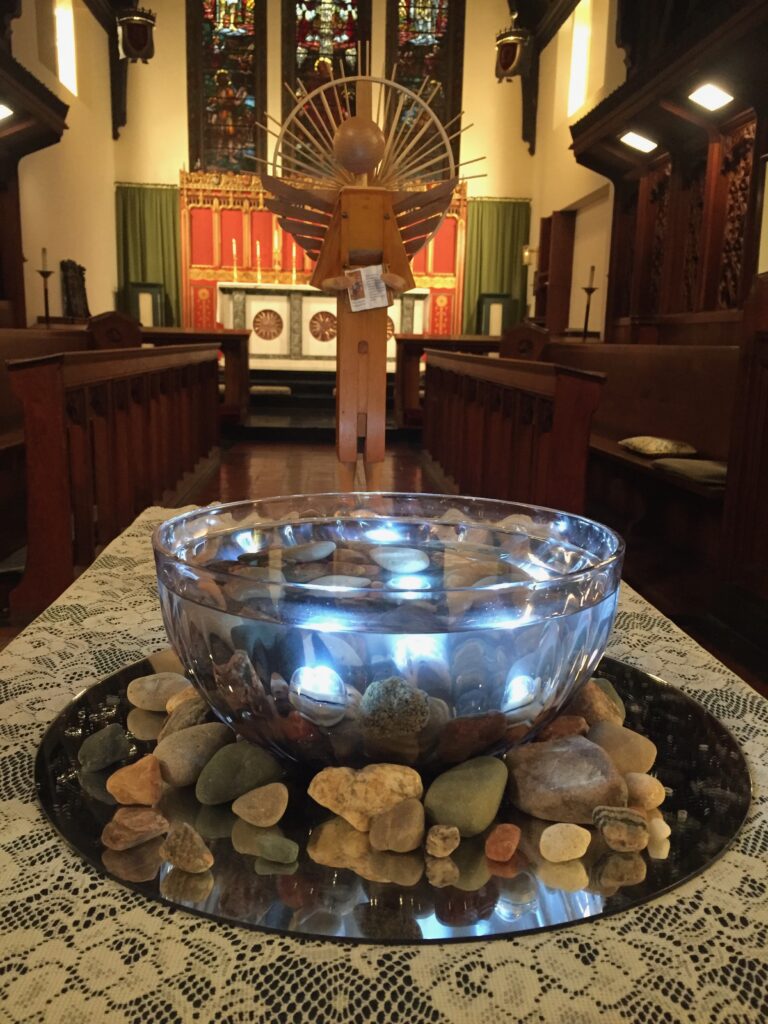
Remembering Our Loved Ones: Observing All Souls’ Day in the Episcopal Church
All Souls’ Day, observed on November 2nd, is a poignant time for the Episcopal Church to remember and honor those who have passed from this life. Rooted in our tradition of prayer and reflection, this day invites us to celebrate the lives of our loved ones while acknowledging the profound mystery of life and death. Through the lens of Scripture and the Book of Common Prayer, we find comfort, hope, and a communal spirit as we gather in remembrance.
Theological Reflections on Life and Death
In the Book of Common Prayer, we find a rich tapestry of prayers and liturgies that guide us in our remembrance.
The Collect for All Souls’ Day invites us to reflect on God’s mercy and love: “O God, the Creator and Redeemer of all the faithful, grant to the souls of your servants departed the unsearchable benefits of your Son’s passion.” This prayer encapsulates our belief in the redemptive power of Christ and reassures us that death is not the end but a transition into God’s eternal embrace.
Scripture offers further comfort as we turn to passages such as Romans 14:8, which proclaims, “For if we live, we live to the Lord, and if we die, we die to the Lord; so then, whether we live or whether we die, we are the Lord’s.” This verse reminds us that our loved ones are held in God’s care, and that our relationship with them continues through the love of Christ.
A Day of Remembrance
On All Souls’ Day, we create sacred space for grief, remembrance, and hope. The liturgy often includes the reading of names of those who have died, allowing us to honor their memory publicly. This act of naming creates a powerful connection between the living and the departed, affirming that they are not forgotten and that their lives matter.
The practice of lighting candles in remembrance is also a beautiful tradition. As we light a candle, we symbolize the light of Christ shining through the darkness of grief, echoing John 1:5: “The light shines in the darkness, and the darkness did not overcome it.” Each flickering flame serves as a reminder of the eternal light of God that guides us, even in our sorrow.
The Role of Community
All Souls’ Day is not only a time for personal reflection but also an opportunity for communal healing. In our gatherings, we support one another through shared stories, prayers, and fellowship. The liturgy unites us as we collectively acknowledge our loss and seek solace in our faith.
As we come together in worship, we draw strength from the community, echoing Hebrews 12:1, which encourages us to “run with perseverance the race marked out for us, fixing our eyes on Jesus.” Together, we fix our eyes on the hope of resurrection and the promise of eternal life, knowing that we are not alone in our journey of grief.
Prayers for the Departed
In addition to communal worship, personal prayer on All Souls’ Day holds great significance. The Book of Common Prayer provides various prayers that can be offered not only for the departed but also for those who mourn. One such prayer reads, “Grant us, with all who have died in the hope of the resurrection, to have our home with you forever.” This prayer encapsulates our longing for reunion and the assurance of God’s love that transcends death.
We are also encouraged to engage in acts of remembrance, such as visiting gravesites or sharing memories with family and friends. These acts can be healing, allowing us to honor our loved ones while reflecting on the impact they had on our lives.
Conclusion: Embracing Hope
As we observe All Souls’ Day, let us embrace the hope that lies at the heart of our faith. We are reminded that our loved ones rest in the peace of Christ and that we, too, are called to live in that same light. The rituals of remembrance, the prayers of the church, and the solidarity of our community all contribute to a profound experience of grace.
In the words of the Book of Common Prayer, may we find comfort and solace as we remember those who have gone before us, trusting in the promise of eternal life and the unwavering love of our Lord. Let us honor their memories with gratitude and continue to live out our faith in ways that reflect the love and light they brought into our lives.
-Myra Strand